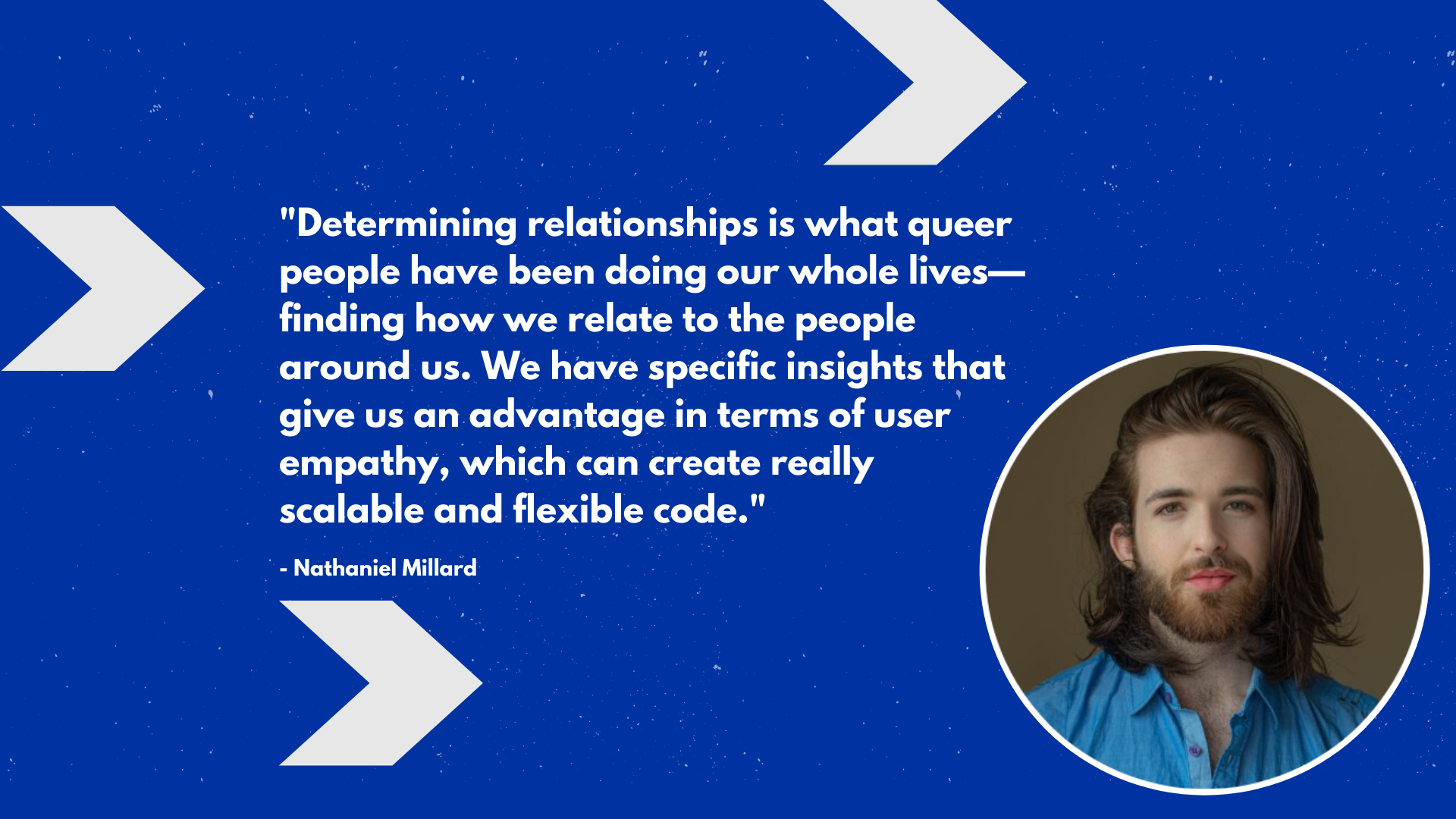Student Spotlight: Learning to Code, Finding a Community

Nathaniel Millard had always been wary of pursuing a career in technology. Though he attended a college prep high school, he never enrolled in college. He was one of the few students in his class who relied on financial aid, and he wasn’t sure how he would pay for his higher education. He also wasn’t sure he had a strong enough idea about what he should study to make the cost worth it, anyway. While he excelled in his STEM classes and teachers suggested he explore those interests, he struggled to push past a nagging feeling he had about the tech industry.
“It just felt like it wasn’t very human,” he says.
After high school, Nathaniel instead enrolled in beauty school and became a makeup artist and hair stylist. He quickly became involved in queer advocacy within the industry, aiming to create gender-neutral and gender-affirming hair spaces. “It was really rewarding work,” he says, “And it also doesn’t pay. I didn’t have a lot of benefits. I didn’t have a lot of agency.”
When the Covid-19 pandemic hit, he realized he needed a change. Social distancing rules meant his salon would be closed for the foreseeable future and he began looking for other opportunities. Some of his friends already graduated from the Turing School, and so he decided to give it a shot.
Nathaniel hit the ground running and immediately loved the school’s coursework, but his old apprehensions about STEM fields soon began to return. “I felt like I didn’t necessarily fit in,” he recalls. “There were a lot of cishet white men. There was a lot of nerd culture and Star Wars jokes going over my head.”
Coming from an industry dominated by women and queer people, this new environment certainly felt like a culture shock. But those feelings didn’t last long. He became involved in a group called Queer Qoders, consisting of about 130 Turing students and alumni. He connected with a peer slightly ahead of him in the program, and they had a lengthy discussion about Alan Turing, the school’s namesake and “the father of theoretical computer science.” Turing famously created a test to help determine a computer’s ability to exhibit true artificial intelligence.
“Determining relationships is what queer people have been doing our whole lives,” Nathaniel says of the engineering industry. “Finding how we relate to the people around us and how we present in certain ways—all of that is tied in. So it was this realization that not only is there a need for us because we need diverse spaces, but also because we have specific insights that give us an advantage in terms of having user empathy that can create really scalable and flexible code.”
Over time, Nathaniel took on more of a leadership role within Queer Qoders. Like school itself, most of the group’s interactions were digital, largely taking place on a Slack channel. Nathaniel wanted to shift the conversation from one of mostly camaraderie and commiseration—still key aspects of the group, to be sure -- to helping people better understand how their marginalized identities can actually help give them an edge in the industry. The group’s members became mentors and confidants to one another, helping eschew the imposter syndrome many of them face every day.
Nathaniel says the Turing School taught him how to code, as well as how to interview for a job and how to negotiate a higher salary—he graduated in January, and started as a software engineer at Housecall Pro, a tech startup based in California, by March. But it also helped him build and be a part of a supportive community. Tech, he says he realized, can be human, after all.
“There was this great community aspect to Turing that other, shorter boot camps just don’t have the room for,” Nathaniel says. “It was a really amazing experience.”